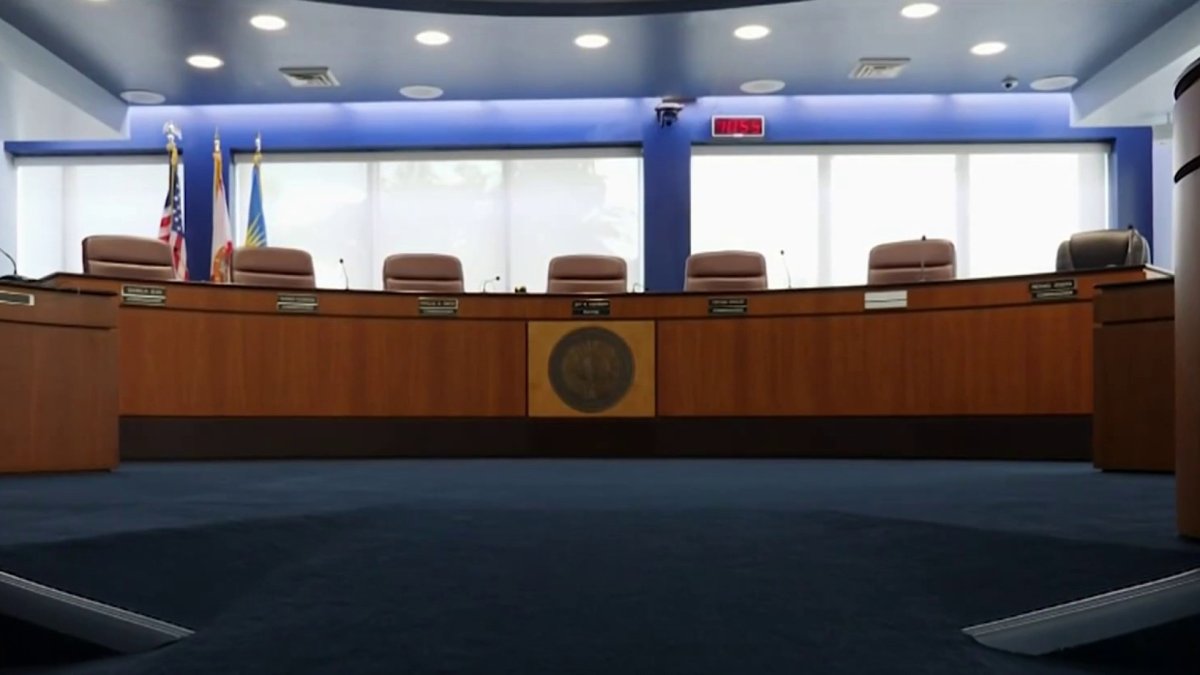Miami Film Festival Names ‘Freda’ And ‘You Can Always Come Home’ – Deadline
Two family dramas, the feature film Freda and short film You Can Always Come Home, have earned the top prizes at the 39th edition of Miami Dade College’s Miami Film Festival. Presented in a hybrid format with in-theater and virtual presentations, the 2022 Festival ran from March 4 through tomorrow.
Making its US premiere at this year’s Festival, Freda, directed by Géssica Généus, earned the top award for her first feature. Set in Haiti, the $25,000 Knight MARIMBAS Award, supported by the John S. and James L. Knight Foundation, is an international competition for new narrative feature films that best exemplify richness and resonance for cinema’s future.
The winning film was selected by jury members Damon D’Oliveria, April Dobbins, and Rubén Peralta Rigaud. The jury said, “This film resonated with all of us for its strong, female-centered narrative, and its exceptional performances from emerging actors. We couldn’t stop thinking about this world and these characters, and we appreciated being immersed in a place that we don’t often see onscreen – portrayed in such a realistic, but tender way.”
The jury also gave special recognition to actor Haztin Navarrete from The Box and actress Mari Oliveira from Medusa saying, “for two magnetic performances that we couldn’t take our eyes off.”
The $55,000 Knight Made in MIA Film Award, supported by the Knight Foundation, is given to three films that have a substantial portion of their content in South Florida and that best utilize their story and theme for universal resonance. They were evaluated by jury members Mollye Asher, Nicholas Griffin, Johann Zietsman,, and Keisha Rae Witherspoon, who won the Knight Made in MIA Award for her 2020 short drama, T.
“You Can Always Come Home,” directed by Juan Luis Matos, won the $30,000 first prize. The jury said, “This is a film that radiates with the joyous spirit of Miami in its embrace of family, community and place while also embodying the universal meaning of home.”
Second prize ($15,000) went to “In Beauty It Is Unfinished,” directed by Greko Sklavounos. The jury said, “This poetic offering is a gorgeous fever dream that captures longing, fragments of memory and a poetic gaze at a Miami that is both familiar but also made a new. Made personal.”
Third prize ($10,000) went to “Un Pequeño Corte,” directed by Marianna Serrano, which the jury saod, “This is a charming and powerful story that serves as a portrait of an independent spirit in a world demanding conformity.”
The family drama You Resemble Me, directed by Dina Amer, garnered the $10,000 Jordan Ressler First Feature Award. This honor, sponsored by the South Florida family of the late Jordan Ressler, is presented to the best film made by a filmmaker making a feature narrative film debut.
The selection committee, comprised of Estrella Araiza, Jonathan Cuartas and 2019 Jordan Ressler Award winner Alexandre Moratto, said in a statement, “We chose the film for its bold depiction of fragmented identity and social inequality through its masterful weaving of styles. Part intimate character study, part topical drama and part documentary, this fearless filmmaker, a former journalist who reported on the real life events that inspired the film, take a personal approach that is at once earnest and troubling, moving and provocative. The Jordan Ressler First Feature Award goes to Dina Amer for You Resemble Me.”
The drama Carajita, coproduced by Wooden Boat Productions (Dominican Republic) and Pucará Cine (Argentina), took home the $10,000 HBO Ibero-American Feature Film Award, sponsored by WarnerMedia. The film, about class and racial issues in Latin America and the Caribbean, was selected by jury members Carlos Aguilar, Leslie Cohen and Brandon Harris. The annual prize is given to the best nominated U.S. Hispanic or Ibero-American narrative feature film, and is awarded to the lead producer or production company.
Set during the era of China’s Cultural Revolution, the war drama One Second won the Rene Rodriguez Critics Award, selected by accredited film critics covering the Festival. The film, screened as a Special Presentation, is directed by Chinese filmmaker Zhang Yimou, a three-time Oscar nominee for Best Foreign Language Film.
Felipe Perez Santiago, composer of Amalgama, earned the Alacran Music in Film Award, sponsored by Alacran Studios. The award highlights the power of music and film and celebrates the role of the film composer. Art of Light (Composer) Award honoree Cristobal Tapia de Veer selected the winner.
The short film category is toplined by the $10,000 WarnerMedia OneFifty Latino Short Film Award, judged by HBO and Miami Film Festival programmers, which bestows $5,000 upon the winner and $1,250 each to four runners-up. The top prize went to the dramatic short “Hector’s Woman (La mujer de Héctor)” from NYC-based Puerto Rican filmmaker Ricardo Varona, with other prizes given to “Chilly & Milly,” “It’s Not Her (No Es Ella),” “For Some Horses (Por unos caballos),” and “The Year of the Radio (El Año del Radio).”
Pakistani filmmaker Ali Sohail Jaura earned the $5,000 Miami International Short Film award, given by select members of Miami Film Festival’s Program Committee, for his historical war drama “Murder Tongue,” which illuminates one of the most brutal chapters in the history of Karachi, Pakistan.
The $500 University of Miami Short Documentary Film Award, as judged by University of Miami School of Communications faculty members, was given to “The Originals,” directed by Cristina Costantini and Alfie Koetter, a ten-year retrospective through the eyes of their former landlord and his childhood friends about growing up in South Brooklyn. “Firelei Báez: An Open Horizon (or) The Stillness of a Wound,” directed by Souki Mehdaoui, received an honorable mention.
The Audience Short Film Award went to romantic comedy “Cariño,” directed by Fernanda Lamuño. First runner up was “Un Pequeño Corte,” directed by Mariana Serrano and second runner up “Madame Pipi,” directed by Rachelle Salnave.
This year’s Best Poster Award went to two outstanding images. Designed by Nate Biller of Jump Cut, the poster for the period drama Parsley evoked the style of Hollywood epics of the 1930s, according to the Festival’s selection panel, while it “subverts those traditions by foregrounding Black Latinx/Haitian characters” to create a timely statement at once “poignant and powerful.” Sander Brouwer’s work for the Chilean thriller Immersion, spotlighting a man unwilling to help a sinking boat, “moved” the judges “immensely” through an inverted submergence in emotion, “a conflict of morals and paranoia,” that can prevent human beings from acting compassionately.
Previous Knight Marimbas Award winner Lorenz Metz served as trailer editor of his own film, the Switzerland-produced Soul of a Beast, a conflicted romantic drama which was chosen for this year’s Best Trailer Award by select members of the Festival’s Program Committee.
Returning in 2022 is the $1,000 Florida Cinemaslam Student Film Award, judged by previous Cinemaslam-winning alumni, with its cash prize going to the gay character study The Truth of a Thousand Nights, directed by Chris Molina. Other non-cash awards were given in five categories: Offside, directed by Emiliano Gioffre (Best Writing), Offside, directed by Emiliano Gioffre (Best Actor), One Call Away, directed by Camila Marcano (Best Actress), Cut Short, directed by Charlie Andelman (Best Cinematography) and Symfaunic, directed by Erin Bergin and Darby Kate Snyder (Best Technical Achievement).
The winners of the Audience Award Feature and Documentary Achievement Award, determined by a vote from members of the Festival’s public audience, will be announced after the end of the Festival.

:quality(70)/cloudfront-us-east-1.images.arcpublishing.com/cmg/5VGXEBWN45CE3E3NUU7ODRZBW4.jpg)

